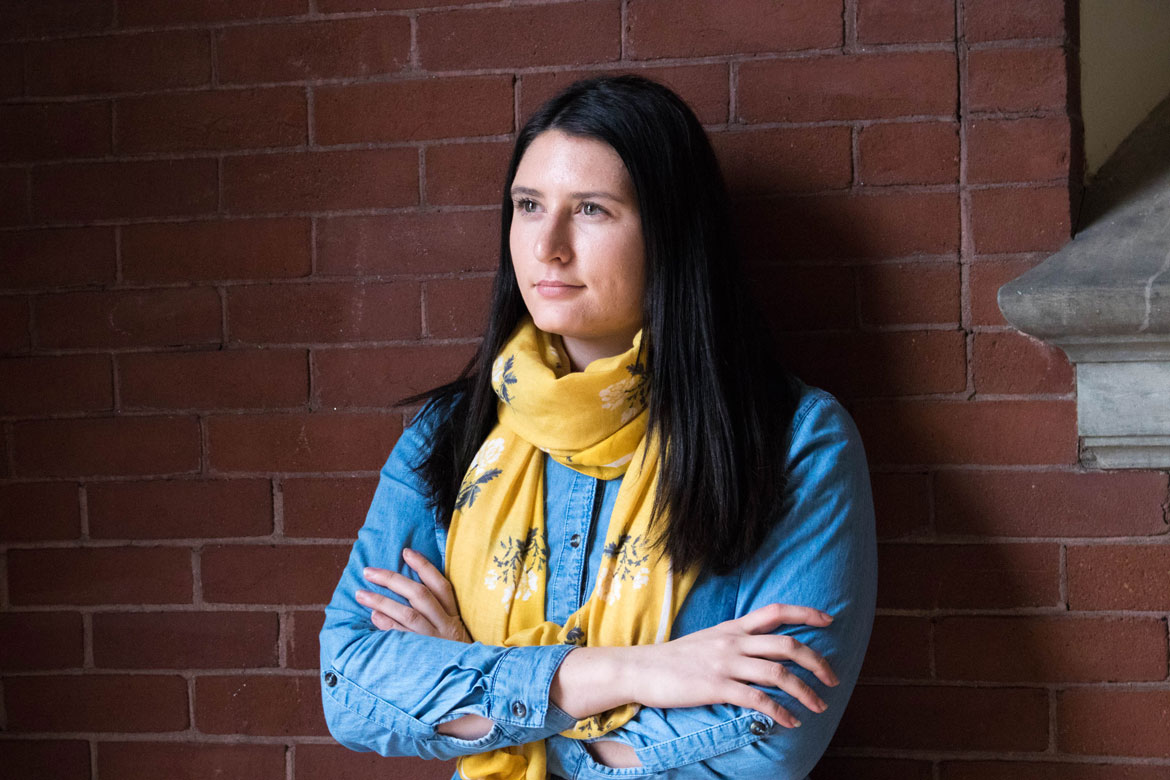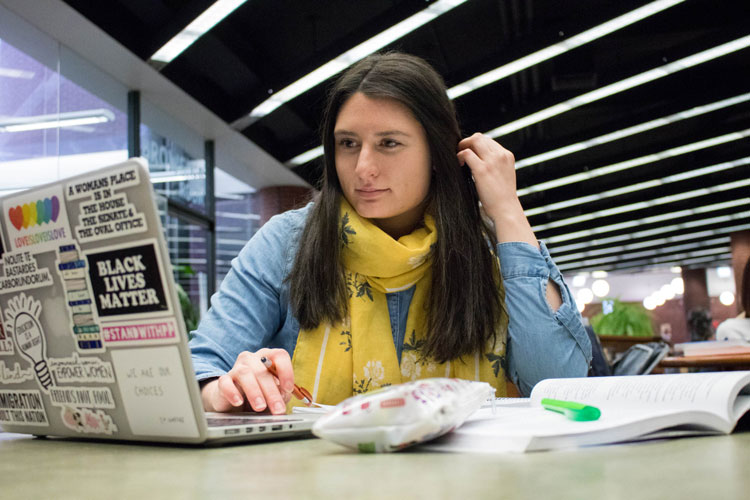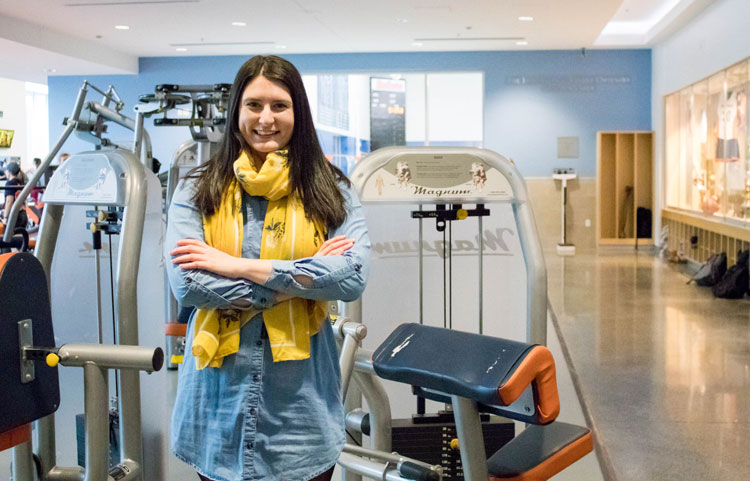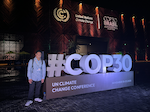

Studying abroad can be an enlightening and exhilarating experience.
Rhiannon Winner ’19 is one of many Gettysburgians who have broadened their perspectives through the global learning opportunities offered at Gettysburg. After studying in Rwanda, Winner decided to join the Marine Corps after graduation—a significant career decision she made as a result of examining her personal and professional goals while she was abroad.
Roughly 60% of Gettysburg students spend at least one semester studying abroad, and others pursue experiential learning programs offered by the Center for Public Service and the Eisenhower Institute, to name a few.
Winner’s first journey overseas with the College came at the end of her first year when she visited Israel and Palestine with the Eisenhower Institute. The trip piqued her interest in Middle Eastern culture and society, inspiring her to study abroad in Jordan during the spring of her sophomore year.
“My semester in Jordan was the first time I had been out of the United States for so long and been so far away from everyone and everything I knew back home,” Winner said. “I’m a pretty independent person, but that threw me into so many situations where I had to figure out how to do things for myself.”
For Winner, the biggest takeaway from her semester in Jordan was her own self-discovery. For most students, the lessons on living independently and uncovering one’s inner resilience are as—if not more— valuable as classroom learning.
“Living in Jordan really helped me realize how much I can do on my own and that I can survive in a foreign environment,” said Winner.
Winner cites her experience in Jordan as one of two transformative moments she had at Gettysburg; the second occurred the following semester while studying abroad in Rwanda. Both the program in Jordan and the program in Rwanda are affiliated with Gettysburg through the School for International Training.
In Kigali, Rwanda, Winner studied post-genocide restoration and peace-building. The program visited killing sites from the Rwandan genocide as well as in neighboring Uganda during a two-week excursion to learn about the Lord’s Resistance Army.
“We talked to survivors, killers, and lots of different people who were affected by conflict in both countries,” said Winner.
Despite the dark subject matter, Winner persevered and managed to land a position as the Great Lakes of Africa Educational Coordinator for STAND, a student-led humanitarian organization striving to end mass atrocities and genocide. In this role, Winner compiles monthly reports on conflict and peace-keeping news, social trends, and other important news in her assigned conflict area, the Great Lakes of Africa region. From there, the information goes to the STAND managing committee so that they can better decide where to focus their attention and resources.

During her semester in Rwanda, Winner began working for STAND as a researcher on the Great Lakes of Africa Region.
As impactful as this work has been for Winner, the greatest significance of her study abroad experience lay in her decision to pursue a career in the Marine Corps after college. Even though Winner’s father served as a Marine, Winner had not really considered the service until her semester in Rwanda.
Midway through her semester, she realized that her time at Gettysburg would be over before she knew it and she should start considering life beyond college. Winner made a list of traits she wanted in a career.
“I wanted to do something where I felt helpful and productive. I needed to be able to respect and be proud of my own work, and the work I would be doing had to be important to me and to the world,” Winner said.
The road to becoming a Marine Corps officer is not easy. Winner trains multiple times a week while at Gettysburg and must apply to and complete a ten-week Officer Candidate School program after graduating before hopefully earning a coveted commission in the Corps. Then, she will go on to The Basic School for an additional six months of training.

Winner trains several times a week in the College’s athletic center to prepare for her future in the Marine Corps.
When considering the countless challenges that she’ll face in the next few years before reaching her goal, Winner reflects on some of the lessons in perseverance and resilience that she learned while abroad.
“Being in a foreign environment for so long helped me develop coping mechanisms and learn to survive on my own,” said Winner. “These are the skills that will eventually help me in the Marine Corps when I’m hopefully deployed overseas.”


